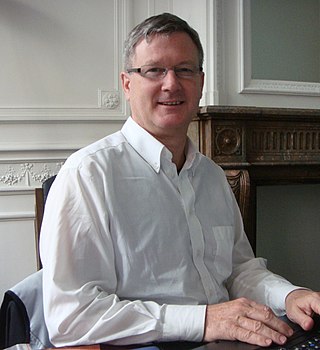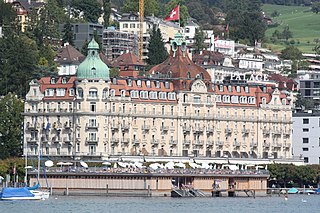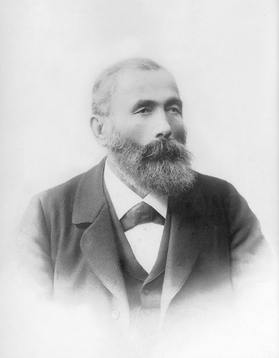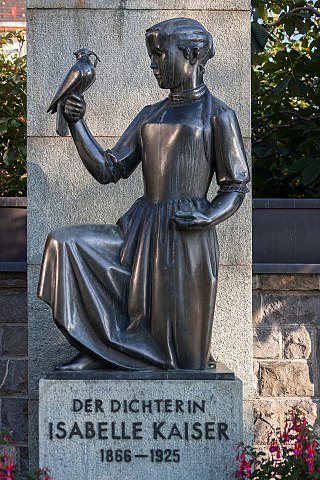Related Research Articles

Lucerne or Luzern is a city in central Switzerland, in the German-speaking portion of the country. Lucerne is the capital of the canton of Lucerne and part of the district of the same name. With a population of approximately 82,000 people, Lucerne is the most populous city in Central Switzerland, and a nexus of economics, transportation, culture, and media in the region. The city's urban area consists of 19 municipalities and towns with an overall population of about 220,000 people.

The canton of Lucerne is a canton of Switzerland. It is located in the country's central, German-speaking part. The population of the canton is 416,347. As of 2007, the population included 57,268 foreigners, or about 15.8% of the total population. The cantonal capital is the city of Lucerne.

EHL Hospitality Business School, formerly known as École hôtelière de Lausanne, is a hospitality management school in Switzerland. The school is often seen as one of the best of its kind in the world, training its students to obtain managerial careers in the hotel and hospitality industries.

Horw is a municipality in the district of Lucerne in the canton of Lucerne in Switzerland.

Bernhard M. Hämmerli is a Swiss computer scientist in the fields of communications, networks, and information security, specifically critical infrastructure protection in the European Union. He is teaching internationally as a professor at both the Lucerne University of Applied Sciences and Norwegian University of Science and Technology. He was president of the Swiss Informatics Society from 2009 to 2014 and chair of the platform ICT Security of the Swiss Academy of Engineering Science from 2012. He has directed a new academic course, Cyber Security, at the Lucerne School of Information Technology from 2018.

Business & Hotel Management School (BHMS) is a private business & hospitality school in Lucerne, Switzerland established in 1998.

The Villa Belvoir is a mansion in Zürich-Enge built between 1828 and 1831. It is registered in the Swiss Inventory of Cultural Property of National and Regional Significance along with the Belvoirpark, one of the largest public parks and arboreta in the city of Zürich in Switzerland.

Alphons Maximilian Pfyffer von Altishofen was a Swiss architect, hotelier and military Chief of Staff. He built the Grand Hotel National, which his father-in-law owned. He hired César Ritz to manage it. His son Hans Pfyffer took over management of the hotel in 1890 after Ritz had left Lucerne for London to manage the Savoy Hotel.

The Mandarin Oriental Palace, Luzern is a grand hotel of the Belle Époque, located on the north shore of the lake on "National Quai" ("Nationalquai") in Lucerne, Switzerland. It was built as the Palace Hotel Luzern between 1904 and 1906, and is officially designated as a cultural asset of national importance.

Franz Josef Bucher was a Swiss business magnate, politician and patron who built his wealth in hotels and railroads. Bucher established the Bürgenstock hotel complex and was the owner and patron of Europe's largest hotel company in the 19th century. At the time of his death, his net worth was estimated at 14 million Swiss Francs. Between 1886 and 1896, Bucher served as a member of the Cantonal Council of Obwalden. He was an energetic entrepreneur who attracted anecdotes reflecting his original and direct approach.
Ernst Brunner was a Swiss documentary and ethnographic photographer.

Hans von Matt was a Swiss painter and sculptor. He was at the heart of an artists' network, known to some contemporaries as much for their fun-loving lifestyle as for serious artistic endeavour. He emerged as a writer on the arts and a "culture politician". He was born and lived in Central Switzerland.
The Hotel & Gastro Union (HGU) is a trade union representing workers in the hospitality industry in Switzerland.
The Lucerne School of Computer Science and Information Technology is a professional school for information technology (IT) in Switzerland. Often called just School of Information Technology, it is a division of the Lucerne University of Applied Sciences and Arts. The campus is in Rotkreuz in Kanton Zug.
Standseilbahn Hotel Montana is a funicular in Lucerne, Switzerland. It leads from Haldenstrasse at the shore of Lake Lucerne to the entrance of Hotel Montana at Adligenswilerstrasse. The installation has a single-car and a counterweight. It runs for a length of 85 m and a difference of elevation of 38 m. The average incline is 50%. Intermediate stops provide access to the premises of SHL Schweizerische Hotelfachschule Luzern.
ANAXAM stands for "Analytics with Neutrons And X-rays for Advanced Manufacturing" and it is a knowledge and technology transfer centre in Switzerland. Anaxam is part of the federal government's "Digitalisation" action plan and a member of the Advanced Manufacturing Technology Transfer Centers (AM-TTC) association. Anaxam is located on the Park Innovaare campus in the canton of Aargau.

The Swiss Federal University for Vocational Education and Training(SFUVET), previously the Swiss Federal Institute for Vocational Education and Training(SFIVET), is the central Swiss educational institution for vocational education and training. It functions under the auspices of the Confederation.
Hotelleriesuisse is the Employers' organization of the Swiss accommodation industry and represents the interests of accommodation establishments in Switzerland.
References
- ↑ "Die Schweizerischen Höheren Fachschulen für Hotellerie und Gastronomie" (PDF). hotelbildung.ch. HotellerieSuisse, Hotel & Gastro union, GastroSuisse. p. 13.
- ↑ "Bachelor of Science in Hospitality Management". Lucerne University of Applied Schiences and Arts, Hochschule Luzern. Hochschule Luzern.
- ↑ "Bologna-Prozess". Schweizerische Eidgenossenschaft. Staatssekretariat für Bildung, Forschung und Innovation SBFI.
- ↑ "Statuten und statutarische Reglemente der Hotel & Gastro Union" (PDF). Hotel & Gastro Union. Hotel & Gastro Union. p. 2.
- ↑ "Alpen, Tourismus, Infrastruktur". Historisches Lexikon der Schweiz. Historisches Lexikon der Schweiz. 2013-07-17.
- ↑ Bieder, Hermann (1909). "Jahresbericht 1909, Schweizerische Hotelfachschule Luzern".
{{cite journal}}: Cite journal requires|journal=(help) - ↑ "Bachelor of Science in Hospitality Management". Hochschule Luzern. Lucerne University of Applied Sciences and Arts Hochschule Luzern.
- ↑ "Allgemeine Informationen zu Höheren Fachschulen". Schweizer Eidgenossenschaft. Staatssekretariat für Bildung, Forschung und Innovation SBFI.
- ↑ "Berufsverzeichnis dipl. Hôtelière-Restauratrice HF / dipl. Hôtelier-Restaurateur HF". Schweizerische Eidgenossenschaft. Staatssekretariat für Bildung, Forschung und Innovation.